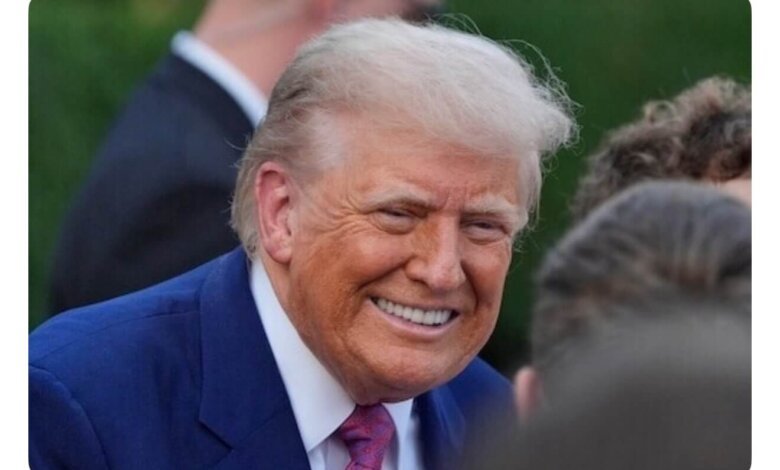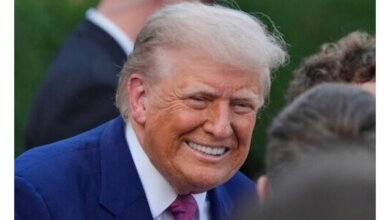U.S.-Pakistan Oil Deal Announced as Trump Slaps 25% Tariff on India: Energy Diplomacy Meets Geopolitical Tensions

Washington/Islamabad/New Delhi, July 30, 2025 — In a dramatic shift in South Asian geopolitics and global trade dynamics, U.S. President Donald Trump on Tuesday announced a new energy-focused trade agreement with Pakistan aimed at developing the country’s untapped offshore oil reserves. The deal, announced via Trump’s Truth Social platform, comes just hours before the White House confirmed a 25% tariff on Indian imports, citing India’s reliance on Russian oil and a widening U.S.-India trade deficit.
The timing of the announcements signals a deliberate pivot in U.S. energy and trade policy — one that could have significant implications for U.S.-India-Pakistan relations and the wider Asian region.
Key Features of the U.S.-Pakistan Deal
Joint Oil Exploration: The U.S. will partner with Pakistan to develop its offshore oil reserves, which Trump called “massive.” The agreement is in its early phases, with the U.S. currently identifying an oil company to lead the initiative. No names or timelines were provided.
Tariff Reductions: Pakistan’s Finance Ministry confirmed that Washington has agreed to reduce tariffs on Pakistani exports to the U.S., rolling back a potential 29% penalty previously announced in April 2025.
Future Oil Exports to India? In a provocative aside, Trump stated, “Maybe they’ll be selling oil to India someday!” — a comment that has stirred debate given the recent military tension between India and Pakistan, following an April 22 terror attack in Kashmir. Trump claims credit for the May 10 ceasefire, though India denies external mediation.
Backdrop: Tariffs on India and Global Trade Realignments
25% Tariff on Indian Imports: Also announced on July 30, these new tariffs take effect August 1 and come with an unspecified “penalty” related to India’s continued purchase of Russian oil and defense equipment. Trump criticized India’s protectionist policies and a $45.7 billion U.S.-India trade deficit in 2024.
National Emergency Tariff Policy: The India tariffs are part of a broader Trump policy enacted under an April 2 national emergency order, which includes a 10% baseline tariff on all imports and higher rates for nations with large trade surpluses or national security concerns.
Talks Still Ongoing: Despite the tariffs, Trump said the U.S. is still negotiating with India: “We are talking to India now — we’ll see what happens.”
Strategic and Economic Implications
For Pakistan: The oil deal could bring major investment and U.S. technical expertise to a country struggling with energy insecurity. However, experts warn that exploration costs may exceed $30 billion, and Pakistan has historically struggled to attract serious international bidders — a challenge compounded by security concerns.
For the U.S.: The agreement could boost U.S. influence in South Asia and reduce China’s strategic footprint, especially as Pakistan is a designated “major non-NATO ally.” It also supports Trump’s goal of diversifying global energy sources and reshaping trade alliances.
For India: Trump’s suggestion that Pakistan could one day sell oil to India has sparked alarm in New Delhi. India is the world’s third-largest oil consumer, importing 88% of its crude. The idea of sourcing oil from a long-time rival seems far-fetched, but symbolically potent.
Mixed Global Reactions
On X (formerly Twitter): Some users hailed the deal as a bold realignment of U.S. energy diplomacy, likening it to China’s Belt and Road or Russia’s Eurasian pipeline strategy. Others dismissed it as “geopolitical fantasy,” citing Shell’s recent exit from Pakistan and persistent instability in the region.
Analyst Concerns: Critics point to the absence of concrete terms, lack of timelines, and unclear investment structures as signs that the deal may be more political posturing than practical progress.
Trump’s announcement hints at further energy and trade deals across Asia as part of his “America First, Trade Fair” policy. Pakistani Foreign Minister Ishaq Dar and U.S. Secretary of State Marco Rubio held high-level talks on July 25, signaling growing alignment in critical minerals and strategic industries.



